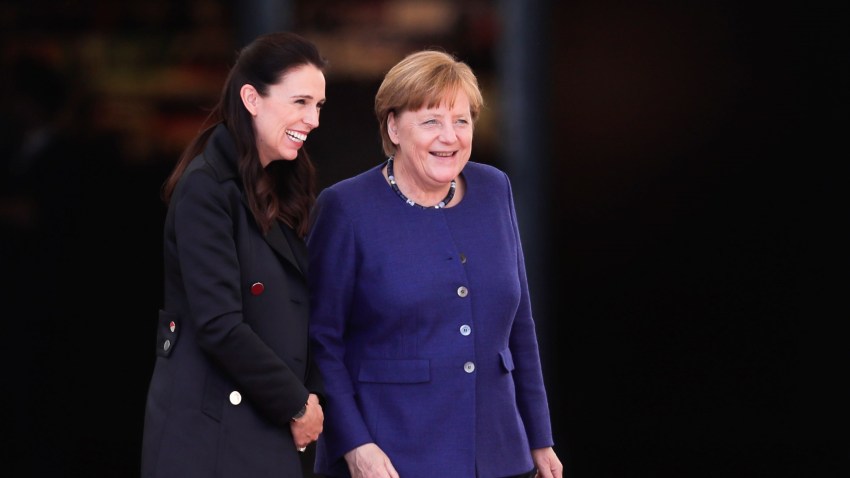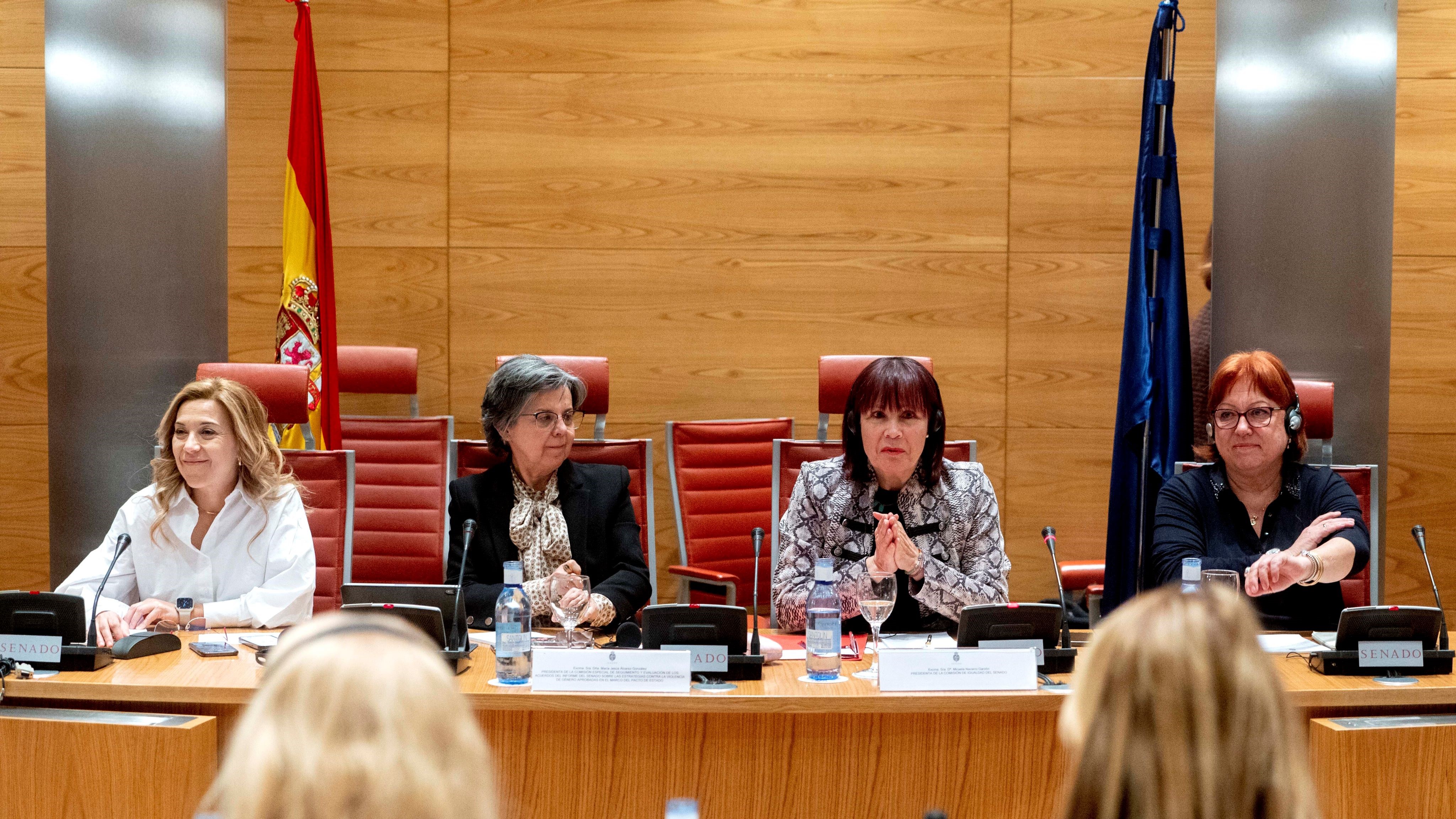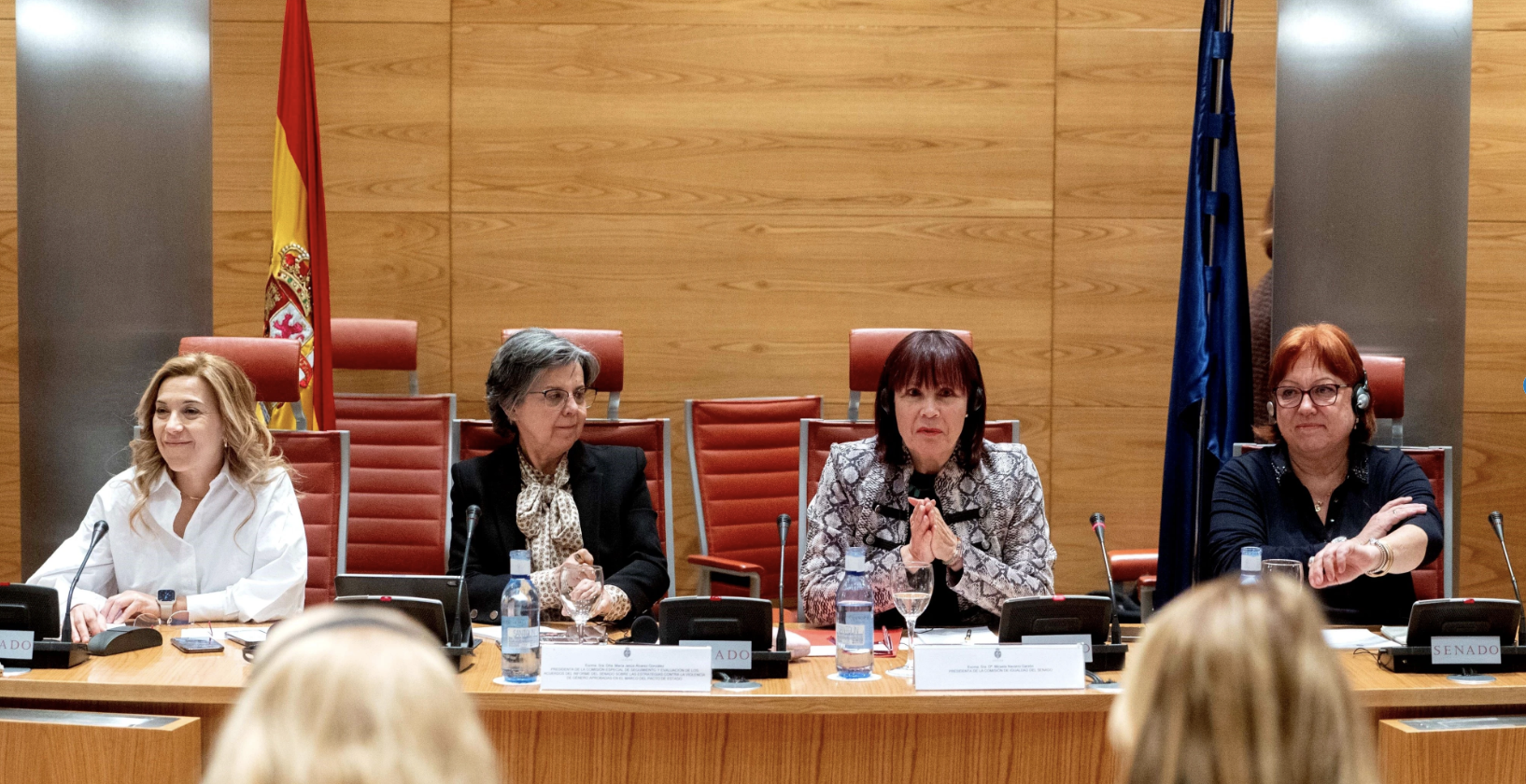
There was a moment in 2020 when women’s political leadership was in the spotlight. From German Chancellor Angela Merkel and Iceland’s Prime Minister Katrin Jakobsdottir to Taiwanese President Tsai Ing-wen and New Zealand’s Prime Minister Jacinda Ardern, women leaders were seen to be winning the war against COVID-19, with their countries suffering fewer deaths than their neighbors.
Speculation arose as to whether and why women make better leaders, particularly in the context of crisis. Was it that these nations already prioritized care before they were led by women, or because they were wealthy democracies in which women were more able to become leaders? Was it purely coincidence that Taiwan, New Zealand and Iceland are all island nations, giving them a natural advantage in controlling the spread of the coronavirus? Or was there something about women’s abilities or style of leadership that set them apart in the pandemic?
The issue was never resolved, and as the economic and social impacts of lockdowns and the complexities of vaccination programs came to the fore, the pandemic-era conversation moved on.
As a result, the question of whether women make better leaders in a crisis remains unanswered. Now, though the world continues to face numerous crises and potential crises, from wars and economic turbulence to the chaos of climate change and unregulated AI, the near-absence of women from the world stage has returned to being something of a “So what?” issue. Does the gender of those governing and creating policy really matter, so long as they are reasonable people with good intentions? Surely, this argument goes, we need to change the world, not nitpick about who should be doing the changing. By this framing, the desire to see more women at the top, whether in corporations or governments, often seems like an elitist issue, something that would be “nice to have,” but that isn’t necessarily urgent.
To the contrary, however, women’s political leadership is more, not less, important in the current circumstances.
The ‘Bad Women’ Argument
Those who argue that having more women leaders would make no difference often go through the rollcall of “bad women” to demonstrate that women leaders can be just as bellicose, autocratic, corrupt and incompetent as their male counterparts. Former British Prime Minister Margaret Thatcher took the U.K. to war with Argentina over the Falkland Islands. Former Indian Prime Minister Indira Gandhi was an authoritarian. Former Pakistani Prime Minister Benazir Bhutto was hounded by allegations of corruption. And more recently, former British Prime Minister Liz Truss crashed the U.K. economy in the few weeks she held office. The list goes on.
This argument is surprisingly persistent, but how much does it actually help us? It seems obvious that few politicians, let alone heads of state or government, will leave office with an unblemished record. But it is nonetheless worth delving deeper into it.
In fact, there is no overwhelming evidence that women heads of government perform any better than men, even in the context of COVID-19. Nor is there evidence that countries led by women are less likely to commit human rights abuses, though there is some evidence—albeit only within particular contexts—that suggests women leaders are less likely to act in an authoritarian way. Nor are women chief executives more likely to seek to represent women or advocate for women-friendly policies.
At the same time, it is worth noting that the lack of data on women as heads of state and government makes any kind of statistical conclusions problematic. With such a small sample size, researchers are looking more at a collection of anomalies than a coherent data set. It might also be the case that the women who manage to reach the top in systems rigged against them have had to adopt many of the stereotypical attributes of male leadership. Or they might have been put in charge of states on the brink of disaster—victims of the “glass cliff” phenomenon.
The Policy Outcomes
However, to look only at women presidents and prime ministers is misleading, because it misses the massive weight of evidence demonstrating the impact of changing the gender balance in legislative bodies. Research from all around the world shows that more equal representation of women in parliaments and legislatures has a substantial effect on policy outputs and a measurable effect on the population being governed.
A key and unsurprising finding is that when there is a greater proportion of women in parliament, they promote and pass more legislation supporting women’s rights and gender equality. There is also greater gender equality among the population in terms of educational attainment, labor force participation and social outcomes when parliaments are more gender-balanced. Women legislators play a key role in bringing about change on issues ranging from the fight against discriminatory family and citizenship laws, to reproductive rights and preventing violence against women. Where there are more women legislators, states provide more support for carers, who worldwide are predominantly women. For example, they guarantee longer maternity, parental and child care leave, better child care provision and better care for the elderly. It’s safe to say that more gender-balanced leadership is likely to create greater gender equality within a society, resulting in all the economic and social benefits that follow.
The evidence shows that where there are more women in the legislature, it benefits human development more broadly across societies.
Furthermore, the evidence shows that where there are more women in the legislature, it benefits human development more broadly across societies. Women legislators tend to prioritize education, welfare, social services, health care, clean water and the environment more than men. States where there are more women legislators are significantly correlated with the abolition of capital punishment. And studies have shown that an increased level of women’s leadership is linked to lower mortality rates, reduced premature mortality and improvements in child health.
Interestingly—and contrary to what much realist international relations theory would lead us to believe—the internal shifts within a country toward gender equality seem to go hand in hand with different approaches to international politics. For decades scholars have debated whether democracy, poverty or ideology are the best predictors of whether a state will go to war. But feminist scholars have found that actually the most statistically powerful predictor is the level of violence against women that takes place within a state. On reflection it makes sense that macho, oppressive and authoritarian societies that endorse—or at least do not prevent—male violence against women at home might glamorize the military and advocate for an aggressive foreign policy abroad.
Research also shows that states where there are more women legislators are likely to be more peaceful and spend less on the military, while being more generous in the provision of development aid and in their responses to international crises. Studies also suggest that they are more likely to prioritize environmental concerns. It turns out that the proportion of women political representatives is in fact central to addressing the “big issues” of war, peace and environmental destruction.
The Politics
This tsunami of evidence all seems to place women legislators squarely to the left of men in commonly accepted framings of the political spectrum. But it is important that calls for more women political leaders should not be a party-specific agenda. Greater gender diversity in leadership should instead be seen as an opportunity to broaden consensus and connection across the political spectrum, not to create divisions among women. Women from traditional or conservative political backgrounds may not advocate for exactly the same policies as left-leaning feminists. But there will likely be numerous areas where women across the political spectrum might work together, for instance to legislate against violence against women and to prioritize better health care. Representing women should not be seen as the preserve of the left.

Nor should it surprise us that there are numerous examples of women playing leading roles in parties that have been labeled as far right, fascist or even racist. Marine Le Pen, who heads France’s far-right National Rally party, and Italian Prime Minister Giorgia Meloni, who leads the neo-fascist Brothers of Italy party, are key examples from European politics. This is at times part of a calculated effort by parties with an unsavory reputation to seek to soften their image by appointing a woman leader. Or else their leadership may be coordinated with the appropriation by these parties of feminist ideas to defend nationalist and xenophobic attitudes and policies. This phenomenon, dubbed femonationalism, can be seen in the way far-right parties often portray Islamic practices and customs, like the headscarf for women, as anti-feminist, and then use the argument to advocate for racist immigration policies.
But the fact that women’s presence on the far right is so shocking perhaps says more about our own societal views of how and where women should be seen in politics than it does about where women actually do position themselves politically. Of course, women do not all subscribe to the same political views.
True Democracy
The overwhelming evidence points to the fact that having a gender-balanced legislature is important in terms of policy outcomes, but it is also key for the fundamentals of democracy itself. Women still hold only 26.8 percent of parliamentary seats worldwide, and women are the heads of state and government in only 31 out of 193 countries. This shocking underrepresentation reflects poorly on the quality of democracy and meritocracy in our societies and shows that there is something very wrong with our systems of governance. The absence of women from politics means that our understanding of which issues are “serious” and “important” has been shaped by men’s perspectives. For our societies to better serve women, there must be more women in politics.
Moreover, at a time when democratic values are under threat around the world and trust in government is greatly reduced, it is important to do everything we can to bolster our democracies. The fact that half our population is persistently and substantially underrepresented constitutes a major flaw that must be addressed.
When looking to increase the representation of women in politics, we need to make sure we are increasing the representation of all women and not simply a narrow elite.
If our societies and democracies were to function at their best, we would be governed by the individuals with the greatest talent and intelligence. Yet, as a global society, we have failed to let the best talent flourish. Decades of exam results show that girls have just as much ability as boys. That so few women reach the top highlights the extent of the bias within the system. Parallel to this are the studies that show that women leaders are more responsive to constituents and less corrupt than their male counterparts. Whether this is due to gender differences in socialization or says something about the ways and contexts in which men and women gain power is not fully clear. Nonetheless, making sure that political leadership is no longer an “old boys’ club” would no doubt improve trust in government from all angles.
The Obstacles
Instead, women face numerous obstacles in trying to enter politics compared with men, including cultural and economic barriers as well as bias on the part of political parties and selection committees. Women candidates and parliamentarians face high levels of online and offline abuse. Work within parliament or during election campaigns is often highly incompatible with the care responsibilities that women tend to take on in their private lives. The issues are myriad, and there are numerous and wide-ranging potential solutions, including introducing quotas, regulating political campaign spending, ensuring diversity on selection committees, reforming parliamentary working hours and providing support for care responsibilities. There is no single panacea, however. Changing the system will require addressing all of the barriers to entry for women in politics, including the sources of societal inequality.
Importantly, when looking to increase the representation of women in politics, we need to make sure that we are increasing the representation of all women and not simply a narrow elite. Women have diverse backgrounds, needs and interests. Moreover, all too often, women and minority groups have been pitted against each other so that one group’s gain has been the other’s loss. We need to ensure that the movement for including more women in power reaches women of different classes, races, religions and locations, and make sure that women with disabilities and caring responsibilities are also represented. The diversity of perspectives that these women will bring to politics will make for better, more robust and representative lawmaking.
Importantly, we need to reframe the question of gender equality in government. This is not something that would be “nice to have” or that is needed only to address “women’s issues.” To the contrary, the research shows that if we want to deal adequately with the big issues that affect us all, we urgently need more women political leaders. As importantly, it is fundamental for the health of our democracies, economies and international cooperation that women have an equal say to men in how our countries are governed.
Minna Cowper-Coles is a research fellow at the Global Institute for Women’s Leadership at King’s College London. She focuses on women’s political representation globally and the interactions between policymaking and gender equality.




COMMENTS